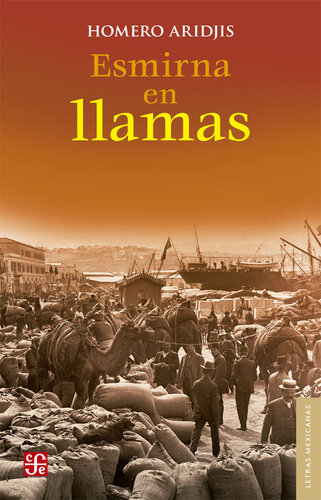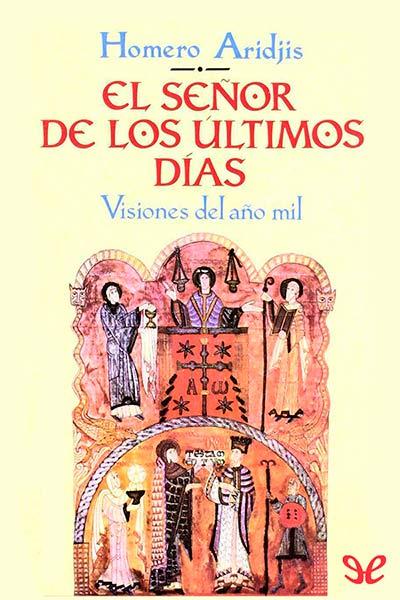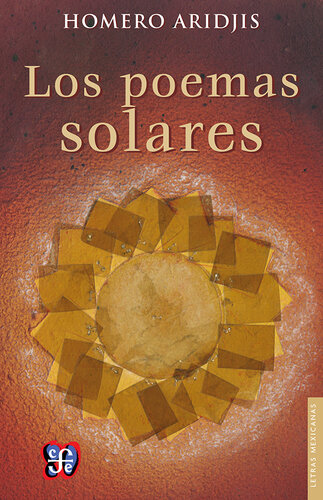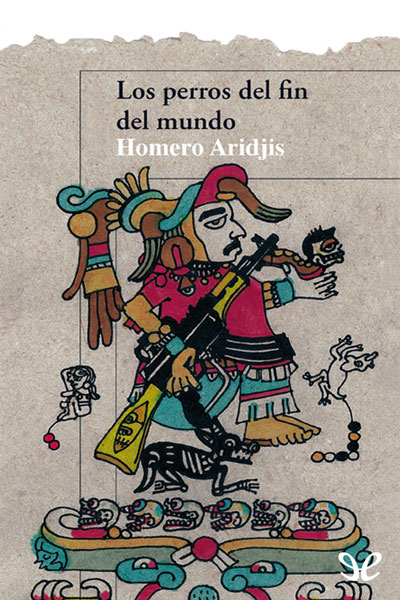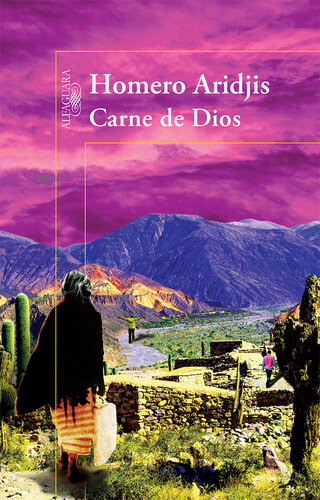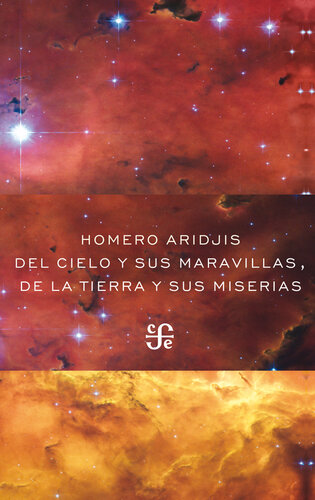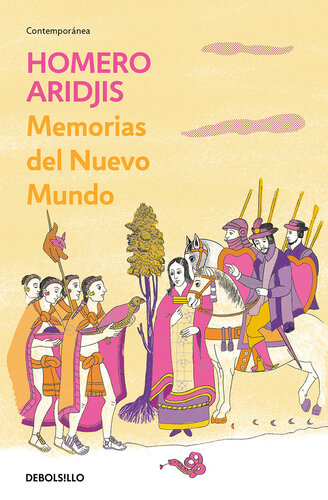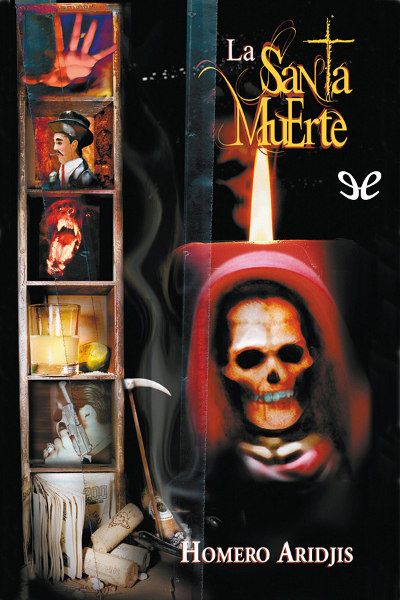oleebook.com
1492 de Homero Aridjis
de Homero Aridjis - Género: Histórico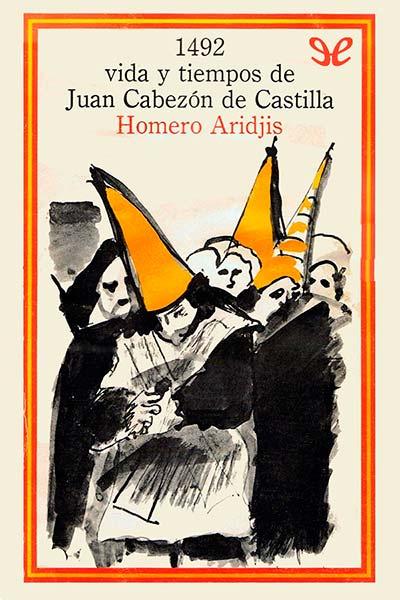
Sinopsis
Basado en fuentes contemporáneas a los hechos que relata, Homero Aridjis ha escrito una de las novelas más ambiciosas de los últimos tiempos en nuestro idioma.
La narración, que comienza en el verano del año de 1391, con el asalto a la judería de Sevilla, y concluye con el viaje de Colón a las Indias, en agosto de 1492, reúne en un mismo espacio literario la ficción y la historia del siglo XV español.
Juan Cabezón, descendiente de conversos, da hilo a la historia, en busca de su amor perdido, Isabel de la Vega. En su persecución nos sumerge en la vida cotidiana de la época, al mismo tiempo que nos conduce con un recorrido inolvidable por diversos pueblos y ciudades medievales (Madrid, Toledo, Zaragoza, Ávila, Calatayud, Teruel, Trujillo, y muchos otros) trazando un verdadero mapa narrativo.
Isabel de la Vega, la conversa de Ciudad Real que la Inquisición ha condenado a ser quemada viva, surge como uno de los personajes femeninos más fascinantes de la novelística hispanoamericana actual.
Pero Meñique, el ciego mitad pícaro y mitad patético, se quedará para siempre en la mente del lector.
El año decisivo es 1492, año en que los Reyes Católicos ganan la Guerra de Granada y firman el Edicto de Expulsión de los judíos de toda España, Cristóbal Colón descubre el Nuevo Mundo y Antonio de Nebrija publica la primera Gramática de la Lengua Castellana.
En particular, Hornero Aridjis describe la Expulsión de los judíos de España con tal riqueza de detalle histórico que logra situarnos en vivo ante los dramas personales y colectivos que acaecieron por esta cruel medida. El pasaje, en el libro, alcanza verdaderas proporciones de éxodo.
Esta novela es un mosaico único de la España de las tres religiones, donde a través del lenguaje próximo hasta donde es posible al espíritu del tiempo, pasan ante nuestros ojos actos de amor, autos de fe, procesiones de penitenciados, sucesos callejeros, escenas íntimas, alegrías secretas y terrores públicos.
Descargar
Descargar 1492 ePub GratisLibros Recomendados - Relacionados
Reseñas Varias sobre este libro
I think I was sleep-reading (is there such a thing?) for most of it. This book was so dull, and I felt much of it was lost in translation. I may try reading it in Spanish at a later date. waisted-time5 s Scott170 4
Homero Aridjis is a Mexican poet and novelist who I have been wanting to read for a long time. I have had "1492: The Life and Times of Juan Cabezon of Castile" so long that the acid content of the paper has colored the pages a pleasant café au lait. Given how many of my old paperbacks I really cant read anymore (old eyes) because the pages have darkened so much, I figure that I better read this book sooner than later.
I the idea of this book, a fictional account of the years in Spain leading up to the expulsion of the Jewish population, told from the liminal perspective of a converso, Juan Cabezon, who, although a practicing Christian, a new Christianthat is, Catholiche maintains close ties with the Jewish population. His liminal position makes him sympathetic to the Jews and Judaized conversos (Christian converts who are perceived as backsliding into Jewish religious and cultural practices) as well as abhor the religious and government officials who persecute, exploit, torture, exile, and/or murder those peoplewhole populations, city to city, village to village throughout Spainwho dont maintain the narrow Catholic behavioral standards defined and maintained by the Inquisition. I know about the Spanish Inquisition and the expulsions of the Jewish and Moorish populations. 1492, or 1491 for that matter, are extraordinarily important years in world history. What I learned about from Aridjis were of the many extraordinary measures, both religious and civil (the spiritual and secular arms of the Inquisition), taken to harass, belittle, uproot, isolate, impoverish these peoples and drive them out of the country with nothing. It is amazing how much time, effort, and resourcesreligious, civil, militarywere expended to purify the country. What hostility. What paranoia. The AppendixTrial of Isabel de Vega and Her Brother Gonzalo de la Vega, Natives of Ciudad Real, Absentis the rhetorical culmination of this history. The dry religious, governmental, and legal language of the transcripts that inexorably condemns them, leading to a burning in effigy. Once the effigies are burned, Isabel and Gonzalo no longer exist as legalcivicentities. They are condemned for Judaizing, conversos backsliding into Jewish practice, seemingly far worse in Spain than simply being a Jew practicing Judaism because the converso violates Catholic practices. A dry, ugly, and pointed way to end the book: the reduction of a person and a people to a set of practices and behaviors deemed legal or illegal.
As much as I found the history in "1492: The Life and Times of Juan Cabezon of Castile" insightful and engaging, I found the plot slow, diffuse, and too loosely structured. In the first hundred pages, Aridjis seems to be using the anonymous picaresque novel, Lazarillo de Tormes (1554), to give "1492" its initial plot structure. In the sixteenth century story, Lazarillos mother gives him to a blind beggar as apprentice, because she cannot afford to keep him. In "1492," Juans father is executed for murder, and to get by afterwards Juans mother partners with three men, one of whom kills her out of jealousy. The orphaned Juan then encounters a blind man who takes him on as guide and helpmate. For the young picaresque protagonist (pícaro), life is about learning from hard knocks and difficult circumstances. As Juan and the blind man, Pero Meñique, move around Madrid, they encounter beggars, prostitutes, cripples, all of whom seem to be quite articulate and well-educated (history, politics, the classics); and, besides being bawdy, their wit is also quick and nimble (Cervantes? Shakespeare?). Although Aridjis seems to use the conversations and reparté between the characters to contextualize the culture, period, and place, they seem artificial and anachronistic, and I feel I lose track of the plot amongst all the banter. The novel is about the expulsion of the Jews, and Aridjis introduces that plot in a variety of ways, including Juans converso family history back a few generations, but there are so many distractions, detours, and tangents from the central plot that I found it difficult to keep it in focus in the first hundred pages.
The rest of the novel shifts away from the Lazarillo structure. Juan is an adult, and he falls in love with a conversa, Isabel de la Vega, and they marry. Their time together is the happiest moment in the novel, resulting in a deep and abiding love between them and, eventually, a son as well. Unfortunately, Isabel and her brother, Gonzalo, are accused of Judaizing by the Inquisition. Neither sibling answers the court summons in order to avoid the inevitable condemnation and punishment. Juan and Isabel go into hiding. More precisely, Juan can go out in public, but Isabel must remain hidden, unseen by the eyes of the familiars, the spy network of the Inquisition that infiltrated Madrid and the rest of Spain. Inevitably, she feels the Inquisition get too close and, now pregnant, disappears, leaving Juan no clue where she has gone.
The rest of the novel is Juans search for Isabel and his child. It becomes a travel narrative as Juan moves from city to city, following the trace of her flight but always just missing her. Once he comes to a town, though, he seems to lose the urgency to find his wife. Instead, he becomes a witness, a disaster tourist. He visits the Jewish Quarters in each town, listens to stories of injustice and persecution, and witnesses auto-da-fés before moving on. Juan observes the suffering of those around him and the imperious authority of those enforcing the Inquisitorial will. In this search/travel arc, Juan has two functions, which end up splitting his character. Its an odd effect, because Aridjis has difficulty integrating the witness with the husband passionate to find his wife and child. Even as a witness to horrible events and circumstances, Juan seems to lack passion: that is, given what he sees he does not get angry and is, instead, emotionally flat. If he is angry, perhaps he has suppressed it in order to better manage his behavior in the face of religious and political oppression. ?I can understand this reasoning, but Aridjis does not make clear the reason for Juans behavior, so as the reader I become impatient with Juans unemotional witnessing as I wait for him to regain his passion and purpose and move on.
In a section late in the book, Aridjis almost seems to break with the search/travel pattern. Juan has returned to Madrid and hooked up with Pero Meñique again. Torquemada is in Avila, where he is officiating at a trial over a trumped up blood libel trial: a Christian child has been supposedly killed, maimed, bled, etc. by Jews. Pero wants to assassinate Torquemada, and Juan agrees to go with him to Avila. In Avila, Pero is ready to kill Torquemada, but Juan neglects to tell Pero the one time when Torquemada crosses their path. Again, Juan is an observer and not an actor, nor does he facilitate the actions of others. While they wait for another opportunity, Pero falls in love with the innkeeper and drinks a lot. They waste a lot of time. When Pero in confusion and desperation attempt to kill Torquemada, whom he mistakenly thinks is near him, Pero stabs a couple of others and is killed in turn. Juan escapes, though, once again to hunt for his wife. This section is the climax of the book, and although it seems its about to break with the search/travel dichotomy of Juans character it doesnt.
In the last section of the book, the Expulsion order has been announced across Spain. The King of Spain has kicked out the Jews, but the King of Portugal is allowing them temporarily into his country, a temporary weigh station after which they must move on. Juan is on the road to exile with everyone else, hoping to encounter Isabel. The two sides of Juans dichotomous character seem to unite. The Jews leave their possessions, wealth, houses, and land behind; they are not given the time or simply just not allowed to dispose of anything,and along the way into Portugal they are being bled dry of what little they have. Juan witnesses the horror of the Expulsion, the human costs. He walks among the exiles, observing them and listening to their stories. Houses, neighborhoods, synagogues up in flames. At the same time, Crístobal Colon (Christopher Columbus) is on his way to the east, and some of this exile population, including Juan, is interested in being part of the expedition. so many of the sections in the book, the narrative piles up stories and testimonials, or it strings out stories and testimonials, distractions and detours and pauses to the main narrative. Lots of interpolated tales that make the novel kind of fuzzy, because they are not integrated into the narrative itself, except as observation. Am I supposed to remember all these horrible stories and details? What am I supposed to do with them? Take away a general sense of horror?
Juan finally finds Isabel and son in Puerto de Santa Maria (Cadiz/Jerez), just as the Jews there going into exile are boarding ships. He would join them or have them join him, but both are impossible. She has been burned in effigy and no longer exists in Spain; Conversos are being detained, tortured, killed. She needs to disappear. He is a Christian, but his converso background puts him in danger, especially at the port, which is crawling with soldiers and agents of the Inquisition. She heads to Flanders, and he heads to Columbuss ships to make his fortune and find her/them again. The End.
I the historical aspect of this novel. I the travel and search arcs. I that Juan falls in love and feels empathy for those suffering religious and political persecution. I that Aridjis uses Juan as a witness to all that suffering and persecution. He just fails to integrate the two facets of Juans character, which produces a strange schizophrenic effect on the novel. Stéphanie466 1 follower
Très bien documenté. Très instructif sur les murs des Indiens de l'époque. Mais que c'est ennuyeux... Le "héros" n'a jamais de recul par rapport à ce qu'il voit, on est étouffé par la multitude de détails sur le mode de vie des Indiens, mais en fait je ne vois presque pas en quoi ceci est un roman... Si le personnage n'était pas fictif on pourrait aisément mettre ce livre en documentaire historique. Quel dommage, le sujet était intéressant.romans-historiques1 R.251
After the 60th page I grew tired of the idiotic narrative. I cannot imagine what brought this novel the acclaim on the book jacket.1 David55
"I drank water from the well and nourished myself on fantasies until sleep began to confound my eyes, and menacing shadows crept off the floor and ceiling and spoke to me. To my astonishment, clothes lying on the floor began to slither across it wrinkled snakes, flies as big as my hand chased hairy spiders along the walls, a table moved about with no human help, and a blood-drenched woman wept behind every door. Each crack was a grimace, each crumbling wall seemed a fallen creature, wormholes in the wood became gnawed faces, holes gaped graves, and every dumb beast seemed to be dismembered, disemboweled and defenceless. The universal enemy who deceived our mother Eve tried to enter my body through my mouth, flapping its great wings around me, scratching my shoulders with its talons, attempting to nest on my chest. In terror I fled from my nightmare corner and went to sit in the doorway for the rest of the year. Then all at once gripped by a mysterious inspiration, I went to the kitchen and other rooms and rummaged through the chests, clothing and storage jars, until fate would have it that I found a pot filled with Castilian gold coins beneath my mother's bed.
Dawn came, ray after ray; the light lifted the firmament, dissipated the mists, opened up dark roads and gilded the stones, tiled roofs and bodies of the early risers off to their labors in the town or the fields. The clock over the Guadalajara Gate struck the hour for three leagues around. Seated once again in the doorway of my house, I hazed at the wavy peaks of the Sierra de Guadarrama and the flinty walls of the city, struck by the sun's blades, sending back golden sparks into the sky, as if an invisible magician had suspending in space the music of the spheres: the dialogue between stone and light."
8.5 / 10
Finding out that a novel was a bestseller can sometimes cause a double take, where you really need to pause a moment and wonder how that possibly could have happened. 1492 is many things, but accessible it is not, and the idea of this book entering some kind of shared cultural consciousness is truly fascinating to me. Yes, 1492 is a historical novel, and a book of Jewish suffering. Those are both fine, common categories to belong to, and if you only read as far as chapter one, you could be forgiven for thinking that's all that you're going to get. But after that first, dense, forgettable chapter, 1492 takes a series of bizarre turns into surrealistic adventure that left me completely delighted.
1492 is essentially a picaresque novel, which already feels a surprising categorisation. Maybe it's just me, but I tend to not expect picaresque novels to come along with massive amounts of misery. But along that rollicking journey of pain, the characters and situations we encounter almost all come along with this wonderful dream logic. Magical realism is the obvious descriptor to fall back on, but the dreaminess here makes it feel Lynchian, of all things. There are frequent encounters with odd, desperate, and deformed characters, who communicate aliens with these loping sentences, constantly seeming as though they're speaking past one another without ever losing the thread of it all. This oddness would be an accomplishment for any writer, but to pull it off within the confines of a historical novel somehow feels all the more impressive to me.
When 1492 does remember that it's a traditional-ish novel, which it does from time to time, it also manages to fit in action, romance, comedy, and a murder plot, without ever straining at the seams. It's all held together by Aridjis' prose, which is able to jump between styles seemingly effortlessly.
I want to be shocked and appalled that this only has 5 on Goodreads (most of which are somehow 1 star?), but I only managed to find this at a thrift store, bought with zero idea of what it was, on impulse, due to a love of translated fiction. The English translation seems to be out of print, which is really a shame. I can absolutely see this finding an enthusiastic audience if it ever winds up put out by an NYRB or Archipelago type publisher. José400 12
La novela de Aridjis es una fascinante aventura de Juan Cabezón de Castilla en la Castilla y Aragón del siglo XV, en su búsqueda por su amada Isabel, en medio de la persecución de moros y judíos por una Inquisición extremadamente paranoica y cruel. La novela, sin embargo, está escrita de corrido y adornada de forma muy barroca, a veces con estilos y usos del español anticuados y que no son para cualquier lector. Yo mismo tardé en agarrarle la onda.
Aunque me encantó la novela, creo que no la recomendaría. Eso sí, el esfuerzo de Aridjis para posicionar su novela en un contexto de la época es sobresaliente. Max De Lange133 7
I have not been so annoyed by a book for a long time. So fucking bad. Skipped through the last 80 pages because it just leads nowhere. Also how the fuck are there so many dwarves in Spain. It seems there's a dwarf in every town or something. Hko340 1 follower
Autor del comentario:
=================================
